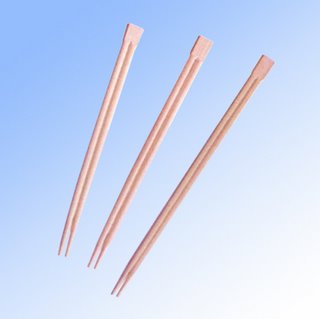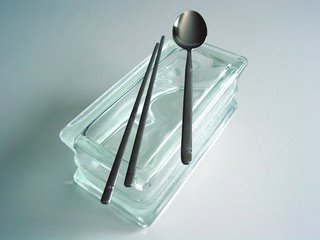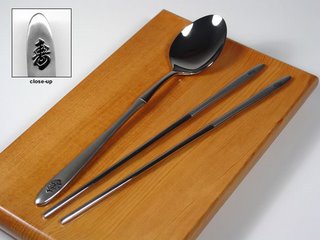
As China goes ecological, Japan fears shortage of disposable chopsticks
In a move that has cheered environmentalists but worried restaurant owners, China has slapped a 5 per cent tax on the chopsticks over concerns of deforestation. The move is hitting hard at the Japanese, who consume a tremendous 25 billion sets of wooden chopsticks a year - about 200 pairs per person. Some 97 per cent of them come from China.
Chinese chopstick exporters have responded to the tax increase and a rise in other costs by slapping a 30 per cent hike on chopstick prices - with a planned additional 20 per cent hike currently pending.
The increase has sent Japanese restaurants scrambling to find alternative sources for chopsticks, which are called "waribashi" in Japanese.
Korean companies are always looking for business opportunities. This looks like an area that they should jump into. Koreans make and use these lovely, slender metal chopsticks (Of course, they require rigorous training before they can be used successfully, but that's a minor thing and could perhaps be another business opportunity for Koreans - chopstick trainers. I'm not sure how you'd be certified - perhaps by picking up marbles in a jar. It could also be something that retired golfers could teach.).


Of course, selling Korean chopsticks would be like selling state secrets. It would allow the Japanese to catch up and perhaps pass Korea in stem cell research and golfing.
Hwang's secret weapons was "a mastery of wielding steel chopsticks,” quoting the scientist as saying, “This work can be done much better in Oriental hands... We can pick up very slippery corn or rice with the steel chopsticks."------------------------------------------------------------------------------------------
What enables South Korean lady golfers to be so formidable in the U.S. LPGA Tour? It is nothing less than the Koreans’ talent to make things skillfully with their hands, a trait handed down from generation to generation for thousands years.
...
Of course, there are some other factors that make all the great achievements possible including tenacity and indomitability, two characteristics of Koreans, along with quite a lot of synergy among the South Korean golfers. But without the dexterity unique to Koreans their great success would be hard to imagine.Yes, hard to imagine. So, does Korea want to dominate the world chopstick market or settle for world domination in stem cell production and golf? A difficult question.


No comments:
Post a Comment